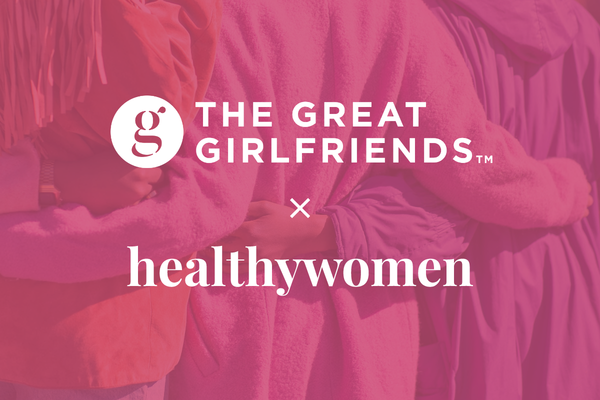August is Wellness Month, and there's still time to learn new ways to take care of your wellness. Wellness month was launched in an effort to foster community, connection and commerce in the wellness industry and to encourage people to create wholesome habits to help them feel better, manage stress and live happier lives.
Live Love Spa founder Lisa Michaelis conceived the idea, with a goal of encouraging people to think about and try out the various roads toward healthy living and start a "new good habit." We hope you will.
Sadly, too many people aren't paying attention to their health. Could it be lack of motivation or information? Lack of time or money? Lack of access to education or health care? There could be so many reasons people might neglect their wellness—but even more reasons why they shouldn't.
Taking care of yourself not only makes you feel and look better, but it can add years to your life. A new Harvard study found that these five habits, when done together, can add 10 years to your life.
- Don't smoke—and if you do, quit.
- Maintain a body mass index between 18.5 and 24.9. (Try these Easy Ways to Lower Your Body Mass Index.)
- Work out 30 minutes or more each day.
- If you consume alcohol, do so moderately (for example, no more than one five-ounce glass of wine for women and two glasses for men each day).
- Maintain a healthy diet.
Read about more Small Self-Care Steps That Will Make a Big Difference.
As someone who strives to live a healthy life and as a health writer who researches and interviews lots of specialists and health experts, I know there are many other things you can do toward wellness besides the five from the Harvard experts.
Last week, I gave you 15 ways—and here are 16 more, which will add up to a month or more worth of tips.
Now, this is important: Some of these tips include fabulous products to help bolster your wellness. Leave a comment by the last day of August and tell us how you celebrate your own health. Your name may be randomly selected to win one of these products!
- Pamper your feet. Your feet carry a lot of weight and walk a lot of miles. By the time you're 50, you've logged about 75,000 miles! All that mileage doesn't come without a cost, and you must maintain your feet to keep them in good working order. Keep them clean and dry, protect them in public areas, cut toenails straight across and avoid trimming them too close to your skin, avoid too-tight or narrow footwear and cotton or wool socks, which can trap moisture. Pathchology makes caring for your feet at home easy with their PoshPeel Pedi Cure Intensive Foot Peel Treatment, which gently peels away dead skin to reveal the smooth, baby-soft skin that lurks underneath.
- Get enough sleep. Most people need between seven and nine hours per night; it's the rare person who can get by consistently on less. Remember, you need good sleep hygiene to achieve the best zzzs: keep your room cool, dark and quiet; shut off all electronic devices at least a half hour before turning in; limit your daytime naps to 30 minutes; steer clear of heavy or spicy foods right before sleep; and create a relaxing bedtime ritual to ease yourself into sleep.
- Eat the best protein. Protein is priceless for good digestion, metabolism, muscle and hair growth, healthy bones and more. As you age, your need for protein increases; it's important to help prevent age-related muscle loss. Most people after age 60 need about 0.6 grams per pound of body weight daily (before then, it's 0.4 grams). Best sources include lean meats, poultry, seafood, eggs and dairy, all considered "complete proteins" because they contain all nine essential amino acids (the building blocks of protein). Lentils, quinoa and nuts are some other good sources of protein. Check out these 10 Surprisingly High-Protein Foods You Should Try.
- Avoid eyestrain. Most people begin needing reading glasses in their early to mid-forties, when reading a menu or label or newspaper can become quite blurry and challenging. If you ignore the need for glasses, you'll end up misreading lots of things and feeling the effects of eyestrain, which manifests itself with headaches and sore, burning, itchy, watery or dry eyes. ThinOptics, a company that has engineered the world's thinnest reading glasses has just launched its second generation, which weigh just nine grams and can slip into your pocket or attach to the back of a phone, tablet, laptop or e-reader. You won't even realize you're wearing them, except for the fact that that once-fine or blurry print will become that much clearer.
- Eat your eggs. For years, eggs got a bad rap because people feared their high cholesterol content and its association with heart disease. Now scientists know better. It's not the cholesterol in foods that contributes to high blood cholesterol; rather, it's saturated fat, which triggers the body to produce cholesterol. The American Heart Association is now in favor of one egg each day for healthy adults.
- But take caution with eggs. Because eggs can be contaminated with salmonella, make sure to check the carton for broken shells. And don't undercook your eggs (pasteurization does help to reduce harmful bacteria, so if you like runny eggs, buy these). After preparing eggs, make sure to wash your hands, countertops, utensils, dishes and cutting boards in hot soapy water. Always refrigerate eggs.
- Be aware of your hydration needs. It's not just sweat that increases your body's need for fluid—it's also factors like heat and exercise. Why? You lose water through breathing and when it evaporates from your skin. It's important to pay attention to your diet. If it contains a lot of salt or protein, you need to drink more water to help your kidneys excrete the excess. Another thing to keep in mind is that as you age, your sensation of thirst gets weaker, so it's important to drink even if you don't feel especially thirsty.
- Keep your blood pressure within healthy limits. New guidelines call for less than 120/80 mm Hg. Lifestyle changes like losing extra pounds, exercising regularly, eating a healthy diet, reducing sodium in your diet, limiting alcohol intake and reducing stress all go a long way toward getting your blood pressure into the healthy range.
- Know the signs of a stroke. Seek immediate medical care if you or someone experiences any of these symptoms of stroke: numbness, weakness or paralysis on one side of the face or body; difficulty speaking or trouble understanding others; blurred, decreased or double vision; dizziness, trouble walking or loss of balance or coordination; sudden severe headache or an unusual headache that may be accompanied by dizziness, vomiting or altered consciousness.
- Slow down, you eat too fast. Eating slowly will not only help you enjoy your food more, but it might even help you lose weight. Research shows that slower eaters, compared with those who eat quickly and mindlessly, are less likely to become obese. The same study showed that skipping after-dinner snacks and not eating within two hours of bedtime had similar effects.
- Skip the processed food. Not only does it contain a lot of sodium, sugar, chemical additives and empty calories, but it can increase cancer risk, too.
- Retry foods you thought you hated. I used to say the only veggie I hated was beets -until I tried them after many years of shunning them. Now they're one of my faves. Maybe you used to tell your children they needed to try a vegetable eight or nine times before they knew if they liked it or not. While that might have fallen on deaf ears, as an adult it holds true if you're willing to do it. Try that food in different preparations. (My husband hated Brussels sprouts until I found a recipe that included bacon—now he eats them roasted, even sans the bacon.)
- Reach out. Loneliness is bad for your health; research finds that social isolation increases your risk of premature death by as much as 50 percent. It's also associated with increased blood pressure, higher cholesterol levels, depression and an increased risk of dementia. Send an email, pick up the phone, go out and be around people, reconnect with an old friend.
- But stay away from—or rid yourself of—toxic people. While friendships are good for your health and good friendships are to be celebrated, toxic friends or people can be draining, stressful, depressing and demanding—and put your health at risk. A long-term study found that people in negative relationships were more likely to develop heart problems than people whose relationships were more positive.
- Turn on and tune out. Sometimes we all need an escape (not just from bad friends). Music delivers a big dose of happiness and positivity and can help you get away from everyday stressors or create an environment of bliss whenever you need it. You don't need studies to prove that music can boost your mood and prevent depression—although they do find plenty of evidence for that!
- Get your vaccines. To stay well, you need to make sure you're up to date on your vaccines, which you need throughout your lifetime. Besides the seasonal flu vaccine and Shingrix, the new vaccine to prevent shingles, there are others. Click here to see what's recommended for you.
You may also want to read:
13 Things You Need to Know About Shingles
Preventive Health Screenings for Women
Nutrition







